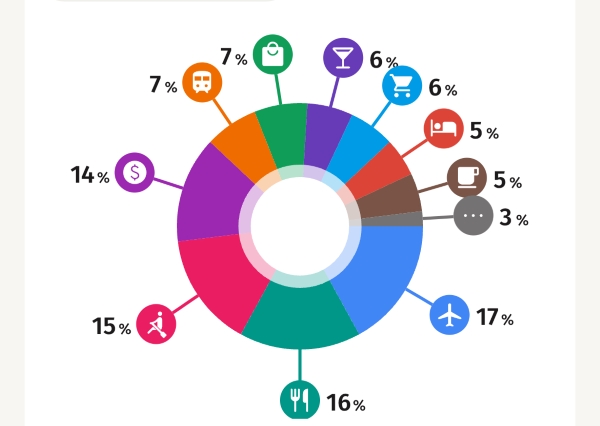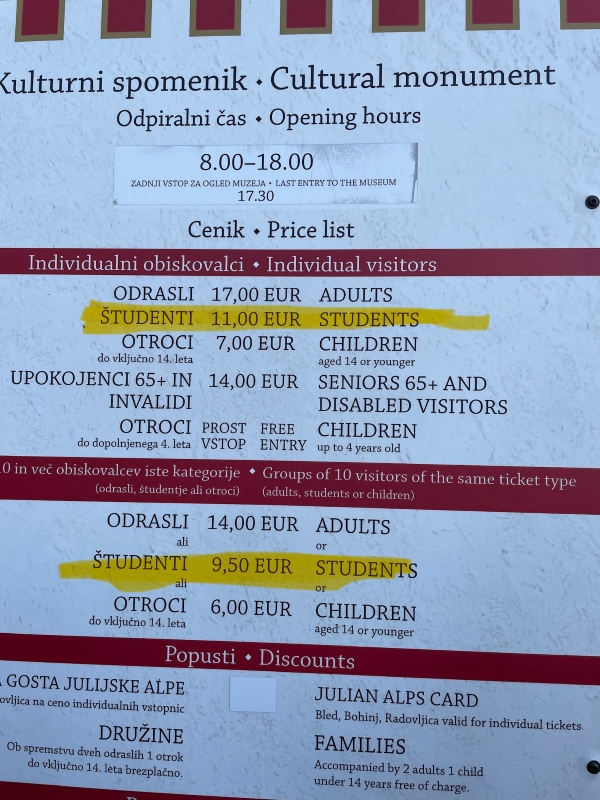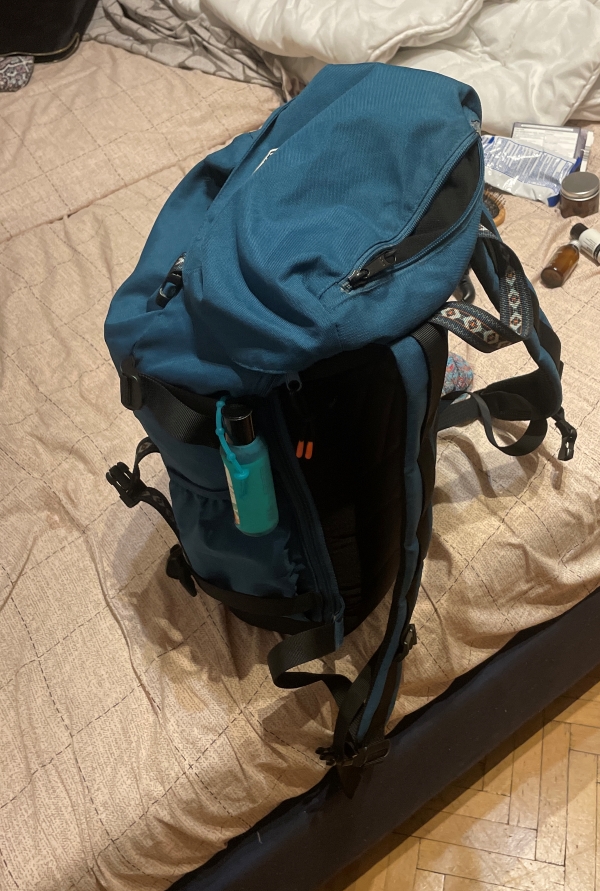Maximize Your Study Abroad Experience Without Breaking the Bank
Keep Track of That Budget
One of my main goals for studying abroad was to travel as much as possible. I love exploring and immersing myself in new cultures, and I want to reach as many countries as I can in the four months that I’m in Europe. There is so much to discover everywhere you go. Plus, when is the next time you’ll be in your twenties in another country for four months?
If this sounds anything like you, and traveling is a main priority, then I have some tips to travel cheaply and stay on top of your budget.
The first (and I think the most important) tip is to plan out your budget before going abroad and make sure you keep track of how much you are spending. I’d recommend using the app Travel Spend to keep track of everything. It allows you to input your total budget for the duration of your trip and creates a daily budget for you. Then you input all your expenses—in any currency—and it breaks down your spending habits.

The graph was created to show my spending.
I started using Travel Spend a few weeks into my semester abroad, and it’s really helped me change my habits to better align with my budget.
Also, keep in mind that the cost of living in the country you’ll be living in can be quite different from what you’re used to. Some cities like Venice, Copenhagen, and Amsterdam can be expensive compared to cities like Prague or Brussels, and this will impact your budget. It’s important to note that if you’re studying in Europe (this might be true everywhere), always have cash on you. Most places prefer cash to cards, and it makes traveling easier.
Being a Student Comes in Handy
Always, always, always be on the lookout for that student discount. You’ll be surprised how many places offer one. Depending on the country where you’re studying, there might be a pass that allows you to visit museums or historical landmarks for free because you’re a student. Even if that’s not offered, most countries will have a student discount for these areas.
Most of the museums that I went to had a student discount option, and you’ll usually have to show some form of student ID to receive the discount. That’s where the ISIC, or International Student Discount Card, comes in handy. The application process is really easy.
At the university you’ll be attending, head to the registrar and have them fill out a form proving you’re an international student. Then, just fill out the online application and upload that form. Within a day or two, you will receive your ISIC card. You can opt for a physical card, but it’s much simpler to have the virtual version.

Student discount listed at the Ljubljana Castle
Must-Have Apps for Budget Travel
Budget airlines will be amazing for helping you save money—make sure to look for smaller airlines that are partners of bigger airlines like Lufthansa or United. I flew EasyJet, a budget airline, to Amsterdam, and it was easy as pie. EasyJet, Ryanair, Skyscanner, and eDreams are the best apps for finding deals. They travel throughout Europe but always compare options to see what fits your budget and schedule best.
Always try to pack light so everything fits in your carry-on under the seat if you’re flying. Budget airlines tend to charge extra for bags that need to go overhead or be checked. That’s how they get you to pay more. I know this seems daunting, but it’s possible to pack for a week-long trip all in a backpack.
During my fall break, which was 10 days, I packed everything into a backpack, so I didn’t have to pay extra for overhead space or to check my bag. Honestly, it made my entire trip much easier since I only had one bag to worry about.

The backpack I’ve used to travel around with.

Budget airline AirDolomiti, which I flew to Frankfurt.
Make sure to mention that you’re a young adult or student, as some transportation services offer discounts. For cheap shorter-distance travel, I highly recommend Omio and RegioJet. I use Omio every time I plan a weekend getaway. It shows deals and the fastest options to get to your destination via train, bus, or plane. The trains and buses are often similarly priced, but the duration can vary widely.
I won’t sugarcoat it—sometimes traveling on a budget means the journey will be a bit uncomfortable or at an awkward time. Just remember to keep yourself entertained on long journeys with music, movies, or reading to make the time go by faster. It’s all worth it in the end, as you’ll be able to accomplish more of your goals while spending less.
It is also vital that you get your public transportation pass. Unlike in the U.S., public transportation is much more prevalent in Europe, and having a pass for the duration of the stay will save you money in the long run. Once I bought a pass for the Prague public transit system, I was only spending 0.18 cents a day for it versus $1.30 every time I used the tram or metro. It makes a stark difference, though it seems small.
Hostelworld and Booking.com have become my best friends when finding cheap accommodation. They also tend to be relatively close to downtown or main attractions. And if you’re worried about being in a hostel, most of them have the option to be in a female-only room or to have a single room—it just might take extra research. Don’t forget to check Airbnb because sometimes it actually ends up being cheaper, especially if you’re traveling in a large group.

Me on the train to Luxembourg at 5:30 am.
The Hidden Gems Will Surprise You
One thing I absolutely love when traveling is searching for the hidden gems that are off the beaten path. These spots are a great way to see a different side of the city and avoid the hordes of tourists. Typically, these places are also cheaper (or maybe even free) compared to the tourist destinations.
The best way to find these places is to search for “top sights in Prague” on websites like TripAdvisor, Get Your Guide, and Atlas Obscura if you want something unique. When I plan a trip, I love to do a deep dive into the top sights in the city, so I know where to go, and then search for unique spots nearby. I compare what comes up on these websites to travel blogs and local guides that give the inside scoop.
Travel blogs have become my go-to every time I plan a trip. Getting advice on how to get around and what’s worth seeing from someone who’s done it before really helps in budgeting and planning. Many bloggers I’ve read have even pointed me to hidden gems cooler than waiting in line for crowded tourist spots.
I hope these tips help you stick to your budget while accomplishing your traveling goals during your time abroad!








